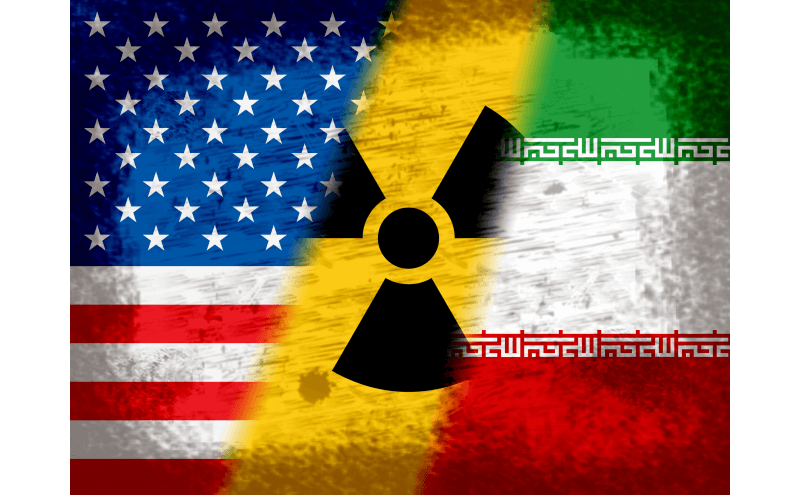In Israel, over 5,000 retired top-level Israeli military officers and former security officials have signed an open letter to President Joe Biden, urging him and his officials not to agree to the revived nuclear agreement with Iran. The latest effort comes as reports indicate that Tehran and American officials are agreeing to a bevy of measures that would allow for economic sanctions relief for the Islamic Republic and generate revenue for the regime and its terrorist proxies in the Middle East.
According to the text of the letter, the officials argue that the current proposed deal is "catastrophic for American, Israeli and global peace and security for a broad range of reasons." The letter's signatories come from Israel's Defense and Security Forum, containing senior officers from all branches of Israel's armed forces, security and law enforcement agencies, academics, and many others. Officials like Israeli Defense Force (IDF) Generals Gershon Hacohen, Yossi Bachar, Amir Avivi, and others argue that the revived deal allows Iran a "clear legal pathway" to obtain a nuclear weapon in the near future without any preventative measures.
The Israeli officials also argue that the new deal will "unleash a regional nuclear arms race, in which countries such as Egypt, Saudi Arabia, and other Sunni states will either be forced to develop or acquire nuclear weapons to mitigate the Iranian threat."
These officials, like many national security and foreign policy experts on Iran, conclude that such actions will lead to “sectarian and religious war" in the Middle East, presenting disastrous consequences for global security. The Israeli Defense and Security Forum argue in their letter that by unfreezing economic sanctions, the mullahs will be able to have funds to "export terror and instability throughout the region and beyond, at an unprecedented scale, with the addition of a future nuclear umbrella as a force multiplier."
When the Obama administration announced the 2015 Joint Comprehensive Plan of Action (JCPOA) with Iran, Israel opposed the deal, arguing that the measures in the agreement allowed Tehran to develop its nuclear program while providing economic sanctions in the belief that Iran would "moderate." Today, Israel faces a similar situation with Tehran, calling on the Biden administration to cease negotiations with Iranian officials in Vienna and hold the regime accountable for its nuclear activities.
With Iran currently facing significant economic difficulties and growing political protests, many Israeli and American national security experts argue that reviving such a deal will provide the regime with relief and strengthen the lifespan of the Islamic government. Instead, experts believe that the U.S. should continue the pressure campaign against Tehran by enacting harsh economic sanctions against the regime and its officials, supporting protest movements, and strengthening the alliance between Israeli and the Arab states.
In Congress, Republican and Democratic members of the House and Senate have argued against reviving the agreement with Iran, with some stating that they will not vote to remove sanctions against Iran and vote against finalizing the deal as an official agreement. Israeli Prime Minister Yair Lapid and Defense Minister Benny Gantz have met with officials in Washington for the past few weeks. Reports from numerous media outlets also indicate that Israeli military officials have been meeting with U.S. National Security officials to prepare a joint-military option against Iran's nuclear program should negotiations go south. In the past few weeks, Israel has been training its military forces to prepare for a possible strike against Tehran, purchasing military equipment from the U.S., and conducting covert operations inside Tehran against top-level Iranian officials.









